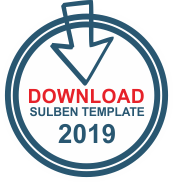Pelatihan Pembuatan Bahan Ajar Menggunakan Aplikasi Flipbook untuk Menunjang Pembelajaran Daring Bagi Guru-guru MGMP IPS Kabupaten Lampung Selatan
 ), Marzius Insani(2), Valensy Rachmedita(3),
), Marzius Insani(2), Valensy Rachmedita(3), (1) Universitas Lampung
(2) Universitas Lampung
(3) Universitas Lampung
 Corresponding Author
Corresponding Author
Copyright (c) 2022 myristica imanita, marzius insani, valensy rachmedita
DOI : https://doi.org/10.24036/sb.02400
Full Text:
 Language : en
Language : en
Abstract
During the COVID-19 pandemic, the learning system underwent significant changes. Teachers as educators must immediately adapt to the conditions so that education continues to run well. Teachers inevitably have to be innovate and creative so that learning objectives are achieved even though the learning is done online. However, in the implementation of online learning, there are still some obstacles or problems. This condition is also experienced by social studies teachers in South Lampung Regency. One of the efforts to maximize online learning is to maximize the use of teaching materials. Making teaching materials using the Flipbook Application or digital books is considered relevant to current conditions. In addition to being cheap and efficient, in this application, teachers can design their own learning materials according to achievement indicators, student needs and student characteristics so that they are more effective and on target. This service uses counseling and training methods. The resulting output target is the ability of MGMP teachers in South Lampung Regency to design basic materials in the form of modules with flipbook applicatio
Key words: Keywords: teaching materials, flipbook applications, innovation and creativity
References
Dendik Udi Mulyadi, dkk. Pengembangan Media flash Flipbook Untuk Meningkatkan Keterampilan Berpikir Kreatif Siswa Dalam Pembelajaran IPA di SMP. Jurnal Pendidikan Fisika Vol 4 No 4 halaman 297
Depdiknas .2003. Undang-undang RI No.20 tahun 2003.tentang sistem pendidikan nasional.
Hilna, dkk. Analisis Proses Pembelajaran Dalam Jaringan (DARING) Masa Pandemi COVID-19 pada Guru Sekolah Dasar. Jurnal Basicedu Volume 4 Nomor 4 Tahun 2020 Halm. 861 - 872
Heinich, R., Molenda, M., & Russel, J.D. (1989). Instructional Media and Technologies for Learning. New York: McMillan.
Ida Malati Sadjati. Tanpa Tahun. Modul Pengembangan Bahan Ajar.
Kusniyah & Hakim,L . (2019). Efektifitas Pembelajaran Berbasis Daring: Sebuah Bukti pada Pembelajaran Bahasa Inggris. Jurnal Pemikiran dan Penelitian Pendidikan, Vol. 17 No.1.
Martins, M. de L. (2015). How to Effectively Integrate Technology in the Foreign Language Classroom for Learning and Collaboration. Procedia - Social and Behavioral Sciences. Vol. 174, Halm. 77–84.
Neng Nenden Mulyaningsih, dkk. Penerapan Media Pembelajaran Digital Book. Jurnal Pendidikan Fisika.Vol 1 No 1 2013
Oktavia, dkk. 2020. Pembelajaran Daring Sebagai Upaya Study From Home (SFH) Selama Pandemi Covid 19. Jurnal Pendidikan Administrasi Perkantoran (JPAP) Volume 8 Nomor 3, 2020
Riyana, C. (2019). Produksi Bahan Pembelajaran Berbasis Online. Universitas Terbuka. Rowntree, D. (1995). Preparing Materials for Open, Distance, and Flexible Learning. London: Kogan Page.
Sari, P. (2015). Memotivasi Belajar dengan Menggunakan E-Learning. Jurnal Ummul Quro,6(2), 20–35.http://ejournal.kopertais4.or.id/index.php/qur a/issue/view/531
Sofyana & Abdul. 2019. Pembelajaran Daring Kombinasi Berbasis Whatsapp Pada Kelas Karyawan Prodi Teknik Informatika Universitas PGRI Madiun. Jurnal Nasional Pendidikan Teknik Informatika. Volume 8 Nomor 1, Halm. 81-86.
Yusuf, Syamsu. 2006. Psikologi Perkembangan Anak dan Remaja. Bandung: PT. Remaja Rosdakarya
Refbacks
- There are currently no refbacks.
Copyright (c) 2022 myristica imanita, marzius insani, valensy rachmedita

This work is licensed under a Creative Commons Attribution 4.0 International License.







